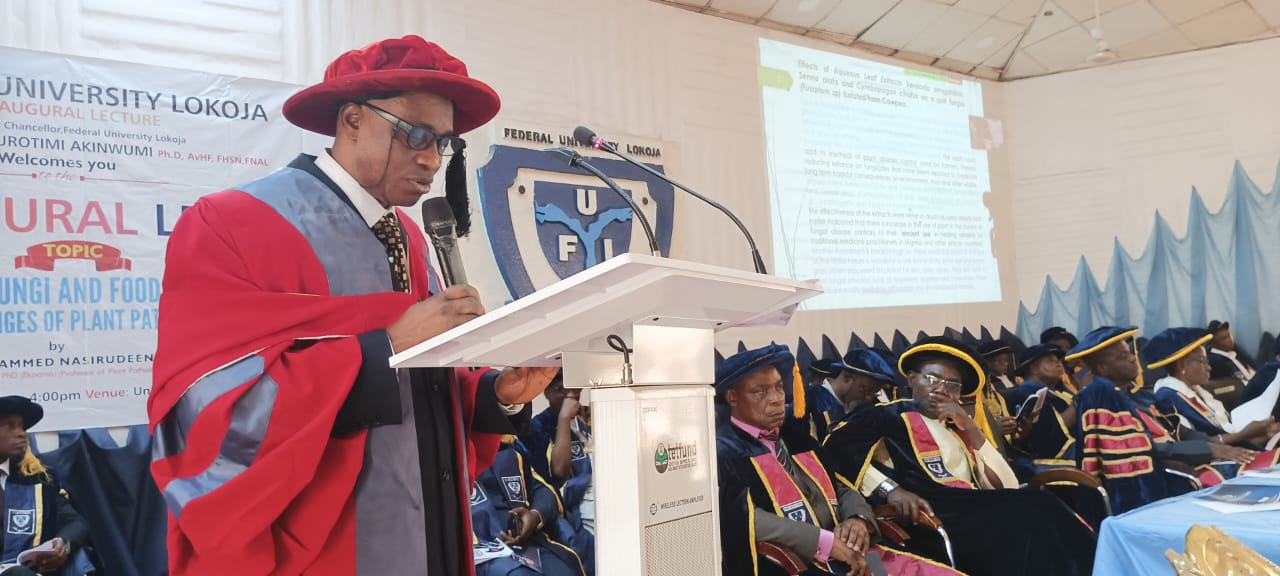From Noah Ocheni, Lokoja.
Prof. Mohammed Nasirudeen Suleiman of Federal University, Lokoja (FUL), has advocated the use of phytochemical compounds in handling pathogenic fungal diseases and curtailment of food deprivation.
Prof Suleiman, a Plant Pathologist and Mycologist, disclosed this in his Inaugural Lecture titled, “Pathogenic Fungi and Food Deprivation, the Challenges of Plant Pathologists” presented as the 10th Inaugural Lecture of the Federal University, Lokoja.
He stressed that the call had become necessary in view of the global challenges of multiple antibiotic resistance to synthetic chemicals and resurgence of previously eradicated diseases.
According to him, phytochemicals are derived from plants that are not only non-nutritive plant chemicals that have protective or disease preventive properties but also protect humans from a host of diseases.
He pointed out man had used plants for health-care for years but the advancement in antibiotics and particularly the enormous development of synthetic organic chemistry, the use of herbs and herbal products had created considerable scientific interests.
“Presently there are global problems of multiple antibiotics resistance as well as emergence of new and the resurrection of previously eradicated plant diseases that could result to food insecurity.”
“This led to the need to source for alternative to chemical control with higher plants as sources of fungicides and their importance in controlling different plant pathogens.”
Most farmers according him “have limited resources and lack the technical expertise required to handle imported fungicides and pesticides which have the disadvantage of being denatured under high tropical temperatures due to long storage and delayed importation”.
Prof. Suleiman declared that no plant was useless as its usage could be for food, medicine or shelter adding that there were about 500,000 species of plants on earth with about 10 per cent of them being used for food by man and animals.
“About 400,000 species of tropical flowering plants have medicinal properties that can be transformed to curb diseases on our crops and ultimately prevent food deprivation”, he added.
Prof. Suleiman hinted that with the level of research into herbal medicine the Federal University, Lokoja would soon become a “Herbal Hub” in the North Central with domestication of other medicinal plants.
“The study of medicinal plant in folklore remedies in the treatment of microbial infection should attract the attention of scientists as possible alternatives to the existing drugs”, he said.

Leave a Reply